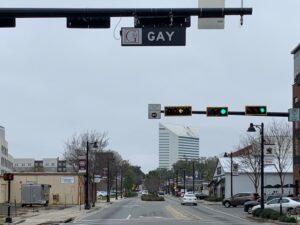
Donors are pulling support from Florida’s private school voucher program, Step Up For Students, following an investigation by the Orlando Sentinel into discriminatory policies held by Florida’s private Christian schools against LGBTQ students, employees, and families.
Wells Fargo and Fifth Third Bank pulled support for the program. Wyndham Destinations, an Orlando-based time-share company, also halted support of the voucher program within the last week.
Wells Fargo said in a statement, “After a thorough assessment, we decided to no longer support Step Up for Students. All of us at Wells Fargo highly value diversity and inclusion, and we oppose discrimination of any kind.”
Other companies have echoed this sentiment.
The program allows student recipients to choose from eligible private schools that include Christian schools. Patrick Gibbons, public affairs manager for Step Up For Students, responded for comment in an email, “The Florida Tax Credit Scholarship serves 108,000 economically disadvantaged students, three-fourths of whom are black or Hispanic with more than half the students living in single parent households.”
These funds put vulnerable students in private schools, in lieu of failing public schools.
“The average student lives in a home making just $25,000 a year. The harassment of donors over the policies of a handful of schools threatens the scholarships of thousands of innocent students,” Gibbons added.
Gibbons did not deny the existence of policies that could be perceived as discriminatory within some private schools, but he did assure that the voucher program itself is non-discriminatory. The Orlando Sentinel reported that its investigation found 156 Christian private schools to be anti-LGBTQ and funded by Florida tax dollars.
Gibbons referenced Elijah Robinson, a LGBTQ student who faced bullying in Jacksonville public schools because of his sexuality, as a beneficiary of choice scholarships. Robinson, 18, switched to a private Christian school after bullying led him to a suicide attempt. His school performance and happiness improved after the change.
Gibbons linked a report by GLSEN whose surveys show that bullying and harassment is worse in public schools than private schools, but that students are most likely to feel discrimination in a religious school.
“It is vital that LGBTQ students continue to have options, like education choice scholarships, that allow them and their parents to escape unsafe learning environments and access safe ones,” Gibbons wrote.
President Donald Trump and U.S. Secretary of Education Betsy DeVos are strong proponents of equal treatment under the federal government for religious and non-religious educational institutions.
The appeal of Espinoza v. Montana Department of Revenue, a case regarding rules established to uphold Montana’s constitution that prohibits students attending religious private schools from receiving scholarship funds, is pending before the U.S. Supreme Court.
This shows that taxpayer funding for religious education is trending as a national, arguably partisan, hot-button issue.